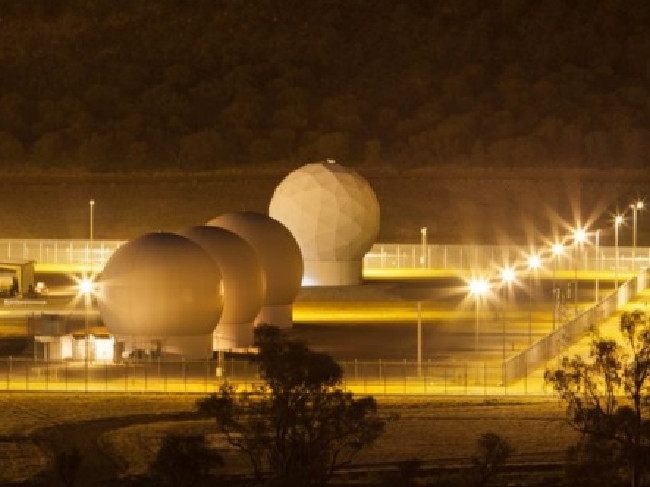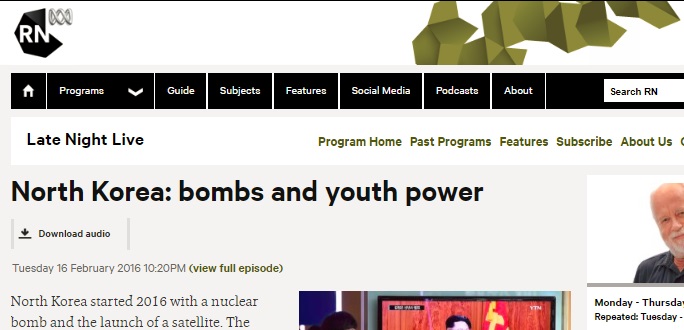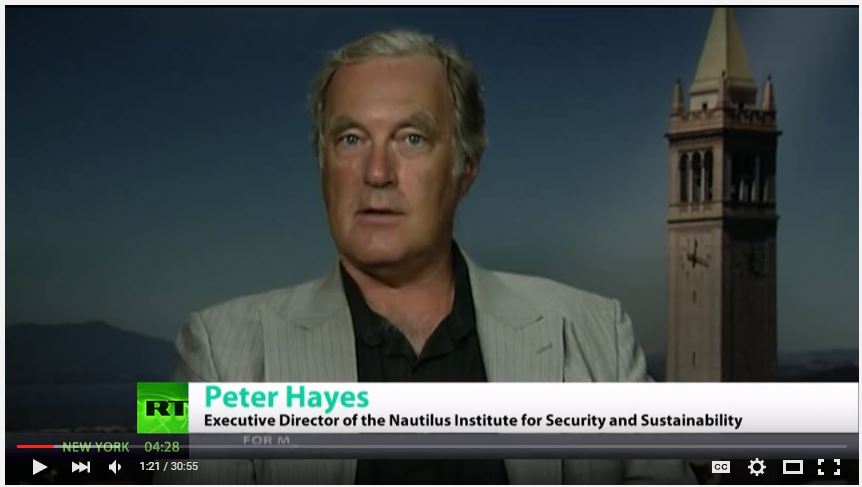Interviews, commentary and analysis given by staff and associates of the Nautilus Institute.
N.Korean kerosene sanction unlikely to be effective: Report North Korea’s domestic refinery capability and capacities enough for rocket, military use

NK News reported Nautilus’s key conclusion: “It appears likely, therefore, that the main impacts will be on households using kerosene for lighting, a small amount of cooking, and a directly proportional amount of space heating in winter time resulting from the lighting and cooking usages, that is, by ordinary North Koreans.”
Go to the articlePine Gap: Nautilus Institute explores Alice Springs joint defence facility

The Nautilus Institute for Security and Sustainability, led by Australian defence academic Des Ball, reveal details of the facility that few of us would know about. Richard Tanter of Nautilus Institute, said the facility essentially remained top secret.
Go to the articleNorth Korea: bombs and youth power

AUDIO: North Korea started 2016 with a nuclear bomb and the launch of a satellite. The United States and its allies believe North Korea needs to be brought under control and tougher economic sanctions have been promised. But Kim Jong Un’s ‘tough’ actions are not for Western consumption but for a new generation of young Koreans […]
Go to the articleNuclear boom? Ft. Peter Hayes, Executive Director, Nautilus Institute for Security & Sustainability

The US and North Korea have been signaling a willingness to restart negotiations. But despite their professions of goodwill, great differences remain in their positions on Pyongyang’s nuclear arsenal and the goal of the negotiations. Could the two sides hammer out a deal that would bring stability to the region, and is further nuclear proliferation […]
Go to the articleFrench spying agency tapping Australia’s communications

Melbourne University intelligence expert and research fellow at the Nautilus Institute for Security and Sustainability Richard Tanter said the latest French revelations were part of a broader picture, largely revealed by Snowden as well as disclosures by WikiLeaks, that showed the US, its Five Eyes partners and other allies and rivals, including France, had gained […]
Go to the articleNorth Korean drought is hobbling the power supply, and the economy with it

“Our understanding is that in the big power plants, not all of the boilers are working,” said David von Hippel, an expert on North Korea’s energy sector at the Nautilus Institute for Security and Sustainability.
Go to the articleN. Korea races to boost power in time for party anniversary

David von Hippel, senior associate with the Nautilus Institute think tank, which has done extensive research on North Korea’s energy situation, said he doesn’t believe the 20-50 percent boost is plausible.
Go to the articleSecret life of Pine Gap gets airing

The report’s authors are Australian National University emeritus professor Des Ball, British investigative journalist Duncan Campbell, Canadian intelligence researcher Bill Robinson and Melbourne University professor Richard Tanter.
Go to the articlePine Gap’s new spy role revealed

The new report by Australian National University emeritus professor Des Ball, British investigative journalist Duncan Campbell, Canadian intelligence researcher Bill Robinson and Melbourne University professor and Nautilus Institute researcher Richard Tanter, an independent policy think tank, draws upon secret intelligence documents leaked by former American intelligence contractor Edward Snowden and a wide range of publicly […]
Go to the articlePine Gap shines in global snooping: report

Public awareness of the Torus program is largely a product of revelations by former National Security Agency (NSA) contractor Edward Snowden. So says a report released last week by a team from the Nautilus Institute for Security and Sustainability, in Berkeley, California, including Desmond Ball, Emeritus Professor at the Australian National University.
Go to the article
